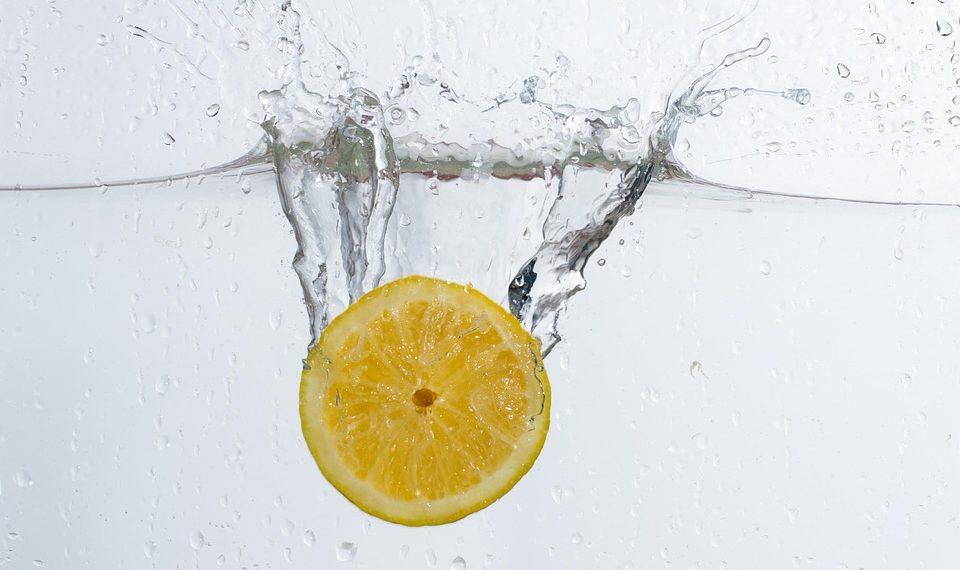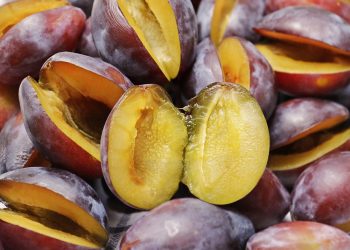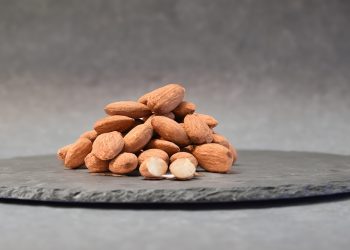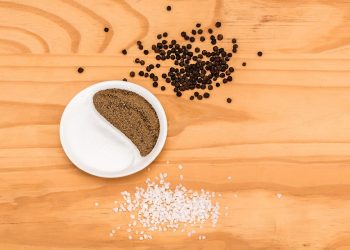Vitamin C is often celebrated for its immune-boosting properties, but did you know there are surprising foods packed with Vitamin C that can elevate your health game? If you think oranges are the only way to get your daily dose, think again. In this article, we’re diving deep into ten unexpected foods that will not only surprise you but also empower your body with the nutrients it craves.
Contents
- Why Vitamin C Matters
- 1. Kiwifruit: The Tiny Powerhouse
- 2. Red Bell Peppers: A Colorful Addition
- 3. Broccoli: The Unsung Hero
- 4. Strawberries: Sweet and Sassy
- 5. Brussels Sprouts: A Little Bit of Surprise
- 6. Papaya: A Tropical Delight
- 7. Pineapple: Sweet Sunshine
- 8. Cantaloupe: A Melon Marvel
- 9. Mango: The King of Fruits
- 10. Spinach: Leafy Greens for the Win
- How to Incorporate These Foods into Your Diet
- The Bottom Line
Why Vitamin C Matters
Vitamin C, or ascorbic acid, is a powerhouse nutrient that plays a vital role in various bodily functions. It’s essential for the growth and repair of tissues, helps produce collagen, and acts as an antioxidant, fighting off free radicals that can damage cells. It’s also crucial for your immune system, helping your body fend off infections and illnesses.
So, why should you care? Because your body can’t produce or store Vitamin C. That means you need to get it from your diet—every single day. Let’s explore ten foods that are not just delicious but also loaded with this essential vitamin.
1. Kiwifruit: The Tiny Powerhouse
You might overlook the kiwifruit, but this little green gem is a Vitamin C superstar. One medium kiwifruit packs about 71 mg of Vitamin C, which is more than a whole orange!
- Benefits: Kiwis are also rich in fiber, which aids digestion and keeps you feeling full longer. Plus, their unique flavor adds a delightful twist to fruit salads or smoothies.
2. Red Bell Peppers: A Colorful Addition
When you think of Vitamin C, red bell peppers might not spring to mind. Yet, one cup of chopped red bell pepper contains about 190 mg of Vitamin C, making it one of the richest sources available.
- Benefits: They’re not just good for your immune system; they also contain a variety of antioxidants that protect your skin. Toss them in salads or enjoy them roasted for a delicious treat.
3. Broccoli: The Unsung Hero
Broccoli often gets a bad rap, but this cruciferous veggie is a nutritional powerhouse. One cup of cooked broccoli offers around 102 mg of Vitamin C.
- Benefits: Not only does it help bolster your immune system, but it’s also packed with fiber and several essential nutrients that support overall health. Steam it lightly to retain those nutrients, and you’ve got a perfect side dish.
4. Strawberries: Sweet and Sassy
Strawberries aren’t just a delightful summer treat; they are also packed with Vitamin C. One cup of halved strawberries contains about 89 mg of the vitamin.
- Benefits: They’re loaded with antioxidants, which help combat inflammation and oxidative stress. Enjoy them fresh, blended in a smoothie, or drizzled with a bit of balsamic glaze for a gourmet dessert.
5. Brussels Sprouts: A Little Bit of Surprise
Brussels sprouts are a bit of a love-it-or-hate-it vegetable, but they deserve a spot on your plate. One cup of cooked Brussels sprouts has about 75 mg of Vitamin C.
- Benefits: They’re rich in fiber and support digestive health. Roasting them with olive oil and garlic brings out their natural sweetness, making them a delicious addition to any meal.
6. Papaya: A Tropical Delight
If you haven’t tried papaya lately, now’s the time! One cup of papaya provides approximately 88 mg of Vitamin C.
- Benefits: Papaya is not only refreshing but also aids digestion thanks to an enzyme called papain. Add it to smoothies or enjoy it fresh with a squeeze of lime for a tropical flair.
7. Pineapple: Sweet Sunshine
Pineapple isn’t just tasty; it’s also packed with Vitamin C. One cup of pineapple chunks has about 79 mg of the vitamin.
- Benefits: Pineapple contains bromelain, which has anti-inflammatory properties. It’s perfect in tropical fruit salads or blended into refreshing beverages.
8. Cantaloupe: A Melon Marvel
Cantaloupe is often overshadowed by its sweeter cousin, watermelon, but it’s a great source of Vitamin C. One cup of cubed cantaloupe has about 65 mg of this essential nutrient.
- Benefits: Low in calories and hydrating, it’s an excellent choice for summer. Try it in a fruit salad or as a refreshing snack on a hot day.
9. Mango: The King of Fruits
Mangoes are not just delicious; they’re also a fantastic source of Vitamin C. One medium mango offers around 60 mg.
- Benefits: Besides Vitamin C, mangoes are rich in Vitamin A, which supports eye health. Enjoy them fresh, in salsas, or blended into smoothies for a tropical twist.
10. Spinach: Leafy Greens for the Win
Spinach is often celebrated for its iron content, but it’s also a good source of Vitamin C. One cup of cooked spinach has about 17 mg of the vitamin.
- Benefits: Spinach is versatile and can be added to a multitude of dishes. It’s great in salads, smoothies, or as a cooked side. Pair it with a source of Vitamin C to enhance iron absorption!
How to Incorporate These Foods into Your Diet
Now that you know these surprising foods packed with Vitamin C, let’s talk about how to include them in your meals.
- Breakfast: Add strawberries or kiwi to your morning smoothie. Or enjoy cantaloupe slices alongside your eggs.
- Lunch: Toss red bell peppers and broccoli into a hearty salad or sandwich.
- Dinner: Serve grilled chicken with a mango salsa or roasted Brussels sprouts as a side dish.
- Snacks: Munch on sliced papaya or pineapple for a refreshing treat.
The Bottom Line
Incorporating these surprising foods packed with Vitamin C into your diet can significantly boost your health. Your body needs Vitamin C for a myriad of functions, so don’t limit yourself to just oranges.
Explore these vibrant foods, and let your meals burst with flavor and nutrition. Your body will thank you, and so will your taste buds!
Frequently Asked Questions
1. How much Vitamin C do I need daily?
The recommended daily intake for adults is about 65 to 90 mg, but some experts suggest higher amounts for optimal health.
2. Can I get enough Vitamin C from supplements?
While supplements can help, obtaining nutrients from whole foods is always the best option for overall health.
3. What happens if I don’t get enough Vitamin C?
A deficiency can lead to scurvy, characterized by fatigue, swollen gums, and joint pain.
Now that you’re armed with knowledge about these ten surprising foods packed with Vitamin C, it’s time to make your grocery list and start incorporating them into your meals. Your body deserves it!
Get Your FREE Natural Health Guide!
Subscribe now and receive our exclusive ebook packed with natural health tips, practical wellness advice, and easy lifestyle changes — delivered straight to your inbox.














